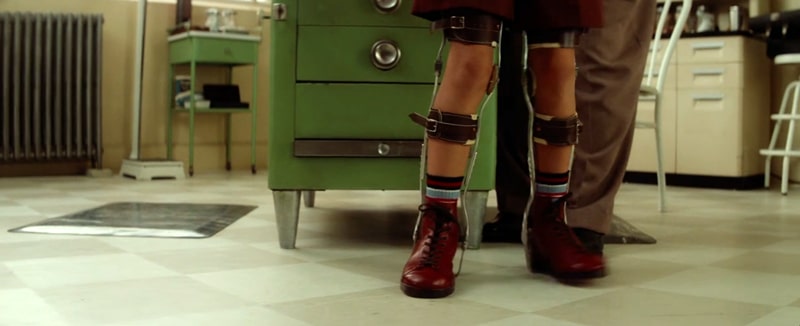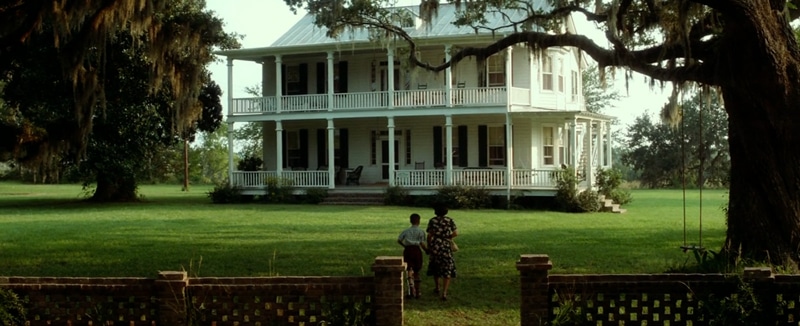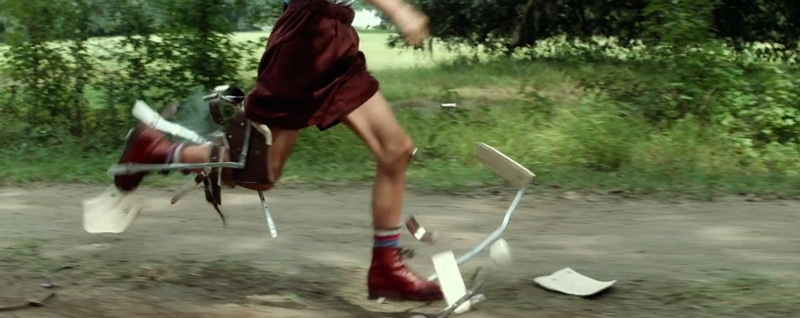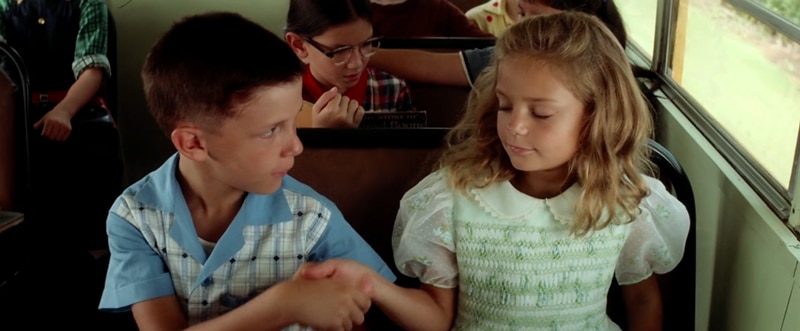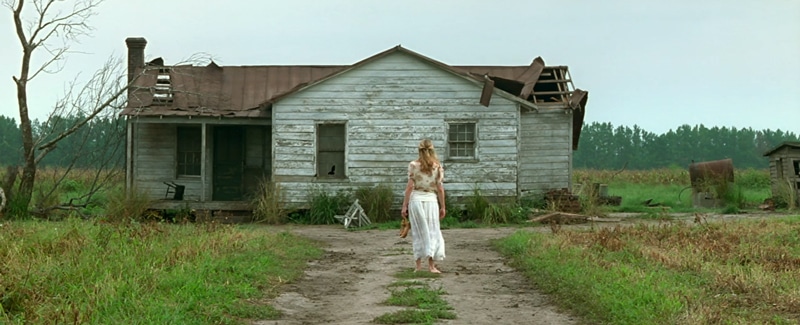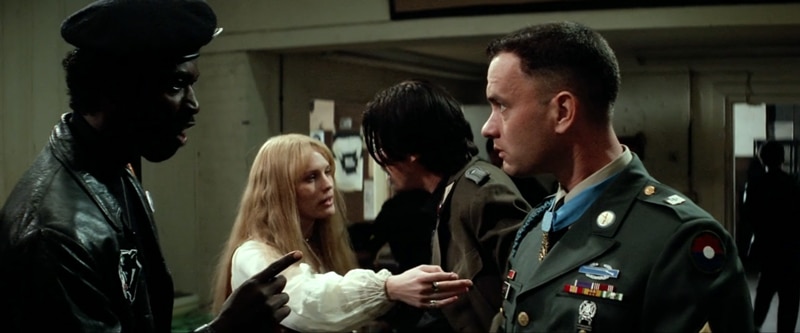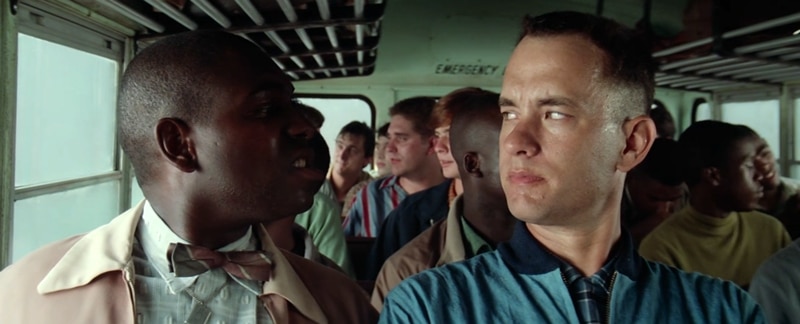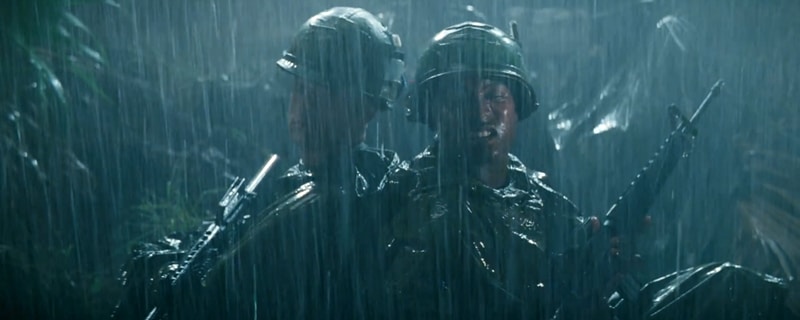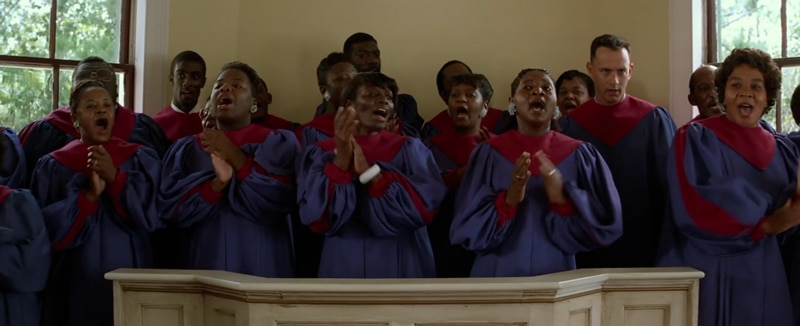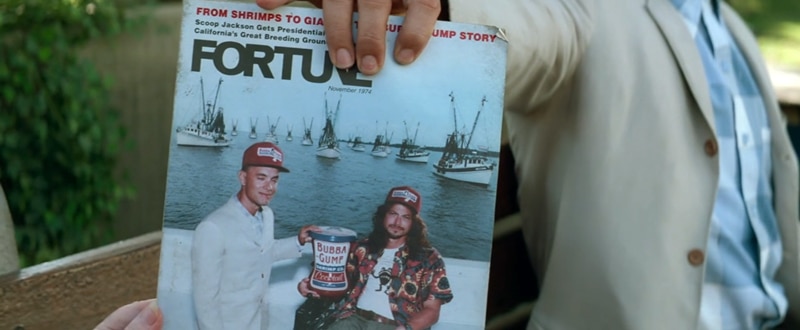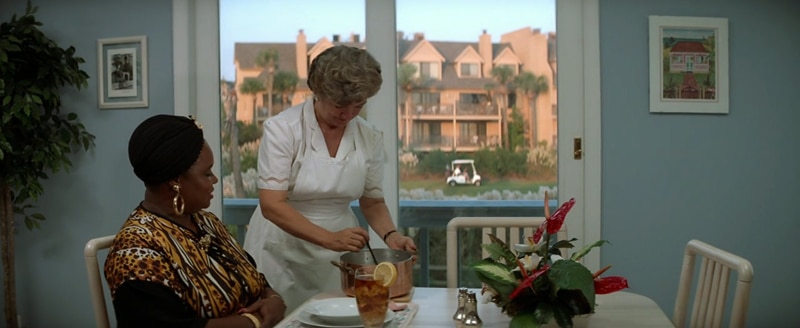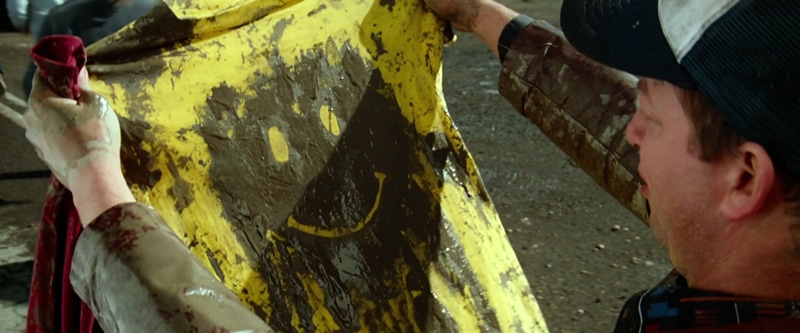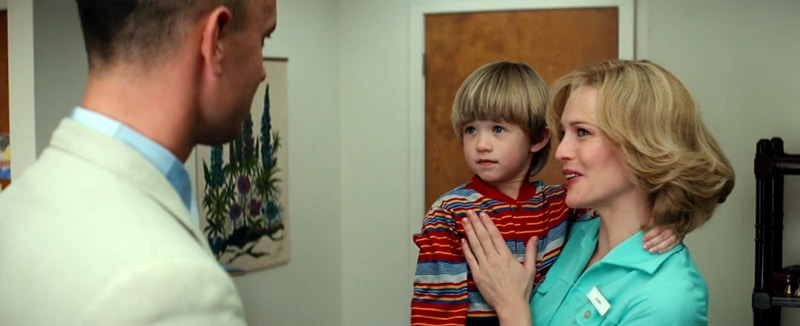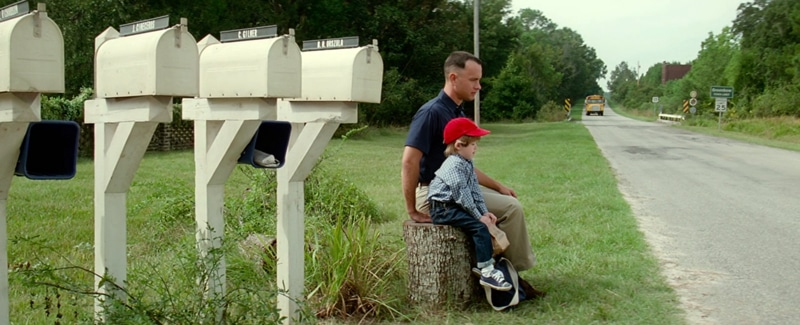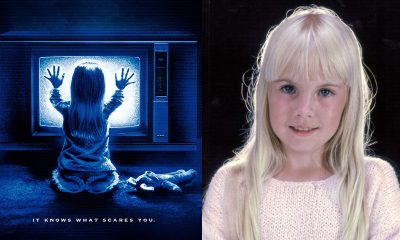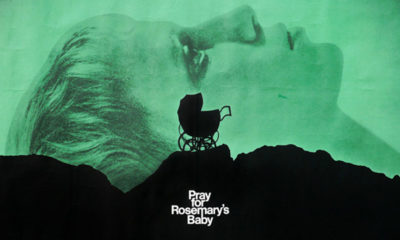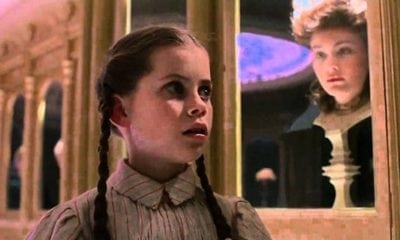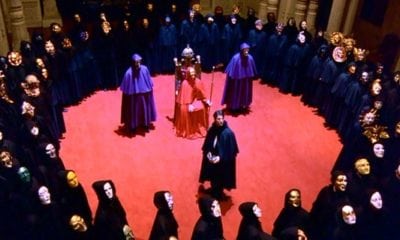Movies and TV
The Hidden Messages in “Forrest Gump” About America and Its Destiny
Forrest Gump is a classic movie about a simpleton who goes on to accomplish great things. However, through powerful symbolism, the movie tells a much bigger story about the opposing forces that shape America’s destiny.
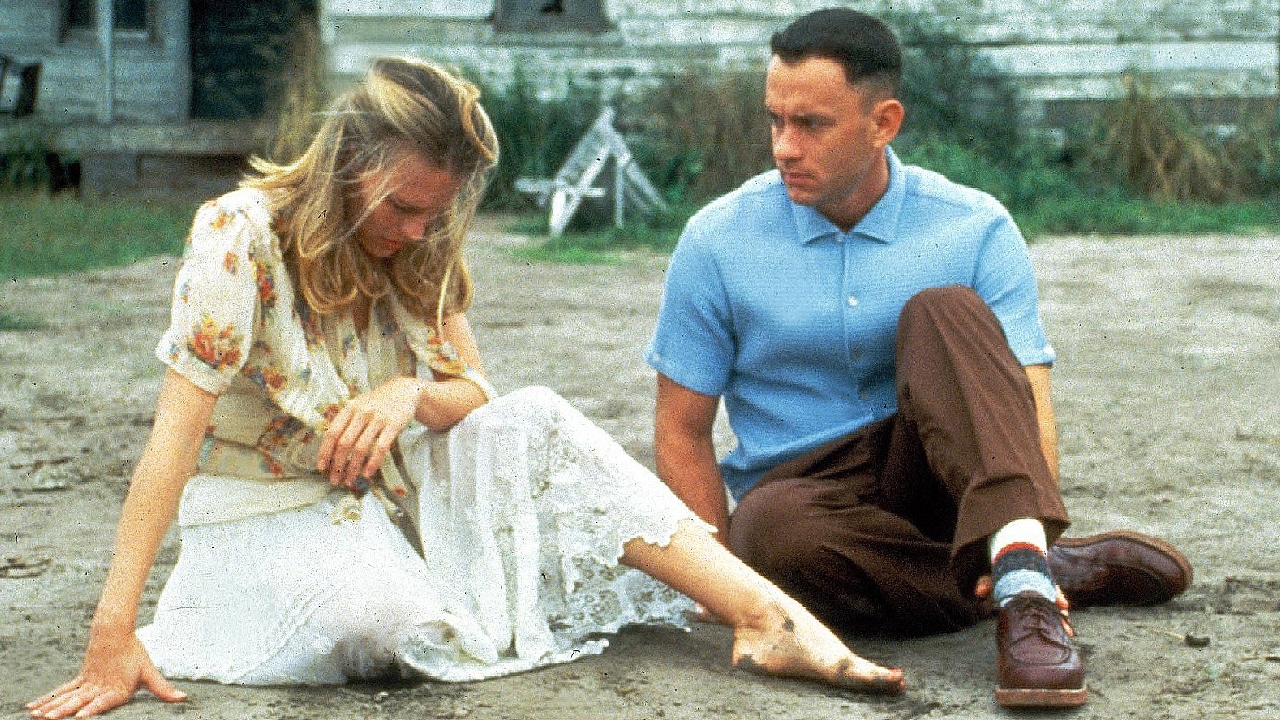
Forrest Gump is one of those movies that needs no introduction. Ever since it was released in 1994, the movie became an instant classic which is now deeply ingrained in popular culture. Proof: Over 25 years later, we still hear people doing the “life is like a box of chocolates” line with a bad Alabama accent.
Directed by Robert Zemeckis, Forrest Gump is based on the 1986 novel of the same name by Winston Groom. However, the movie differs greatly from the book as key details were reshaped and powerful symbols were infused to turn the story into a massive allegory.
As its name stipulates, Forrest Gump revolves around the life of a slow-witted yet kind-hearted man from Alabama who goes on to accomplish great things. In fact, he ends up taking part in most major events in American history between the 1950s and the 1980s.
That’s a lot of accomplishments for one person. That’s because Forrest Gump represents more than a single person. He represents a force, a spirit that characterized America, defined its people, and fueled its history.
There’s also another force that defined American history. And it is represented by Jenny, Forrest’s lifelong friend who ultimately becomes his wife. Through their tumultuous relationship, the movie compares the history of the United States to a feather that is transported by contrary winds.
Is it all random? Or is there an ultimate destiny? Here’s a look at the profound symbolic meaning of the movie’s characters.
Run Forrest, Run
Forrest is a God-fearing country boy from the South. He represents the heart and soul of America. Despite his low IQ, he’s been inculcated with strong moral values from a young age. This fact is illustrated in the first scenes of the movie.
As Forrest tries on his braces, the doctor says to his mother:
“His legs are strong, Mrs. Gump, as strong as I’ve ever seen. But his back’s as crooked as a politician. But we’re going to straighten him right up now, aren’t we, Forrest?”
While the braces did straighten out Forrest’s back, they also symbolize the moral rectitude he’s been imparted with since childhood – a trait that will define his entire life. This rectitude is mostly the result of his mother’s love, care, and knack for teaching Forrest important values in words he could understand.
Passed down from generation to generation, Forrest’s large ancestral home represents “wholesome America”.
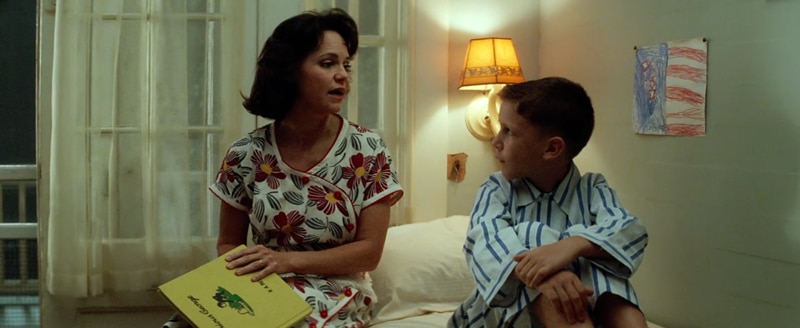
On Forrest’s bedroom wall is a crudely drawn American flag. Forrest represents the spirit that emerged from this environment.
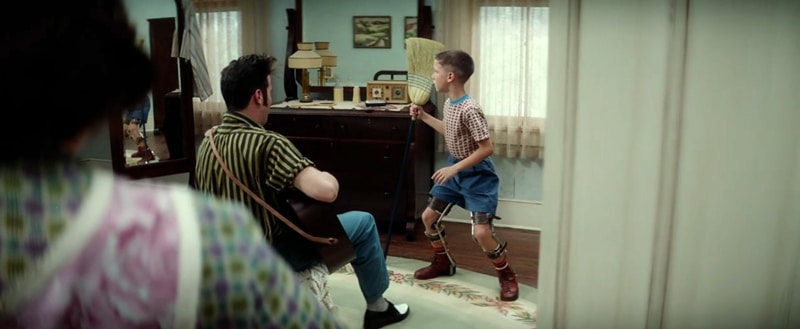
Elvis was a guest at this house and Forrest was the inspiration behind his iconic dance moves. It is the force represented by Forrest that made America a driving force in popular culture.
Forrest’s actions are not guided by his mind but by his heart. In fact, his brain is nearly incapable of making calculated decisions based on self-interest. As a result, Forrest gets called “stupid” his entire life. To which he automatically replies:
“Stupid is as stupid does”.
This phrase, which was learned from his mama, means that one’s intelligence is judged by one’s actions and accomplishments. And, judging by Forrest’s long list of incredible successes, he cannot be defined as stupid. By extension, although wholesome America is not particularly intellectual, the spirit that animates it makes it “run like the wind”.
The braces (which represent Forrest’s moral rectitude during his formative years) appear to have given him a superpower: He runs really fast.
Later in the movie, Forrest’s running allowed him to become a star athlete, a war hero, and even a business mogul. He represents the force that made America a cultural, military, and economic superpower. That force comes from the people themselves whose unwavering loyalty and dedication to “doing the right thing” (even if this right thing was actually wrong) helped America rise during the 20th century. America needed these people to strive.
On several occasions, Forrest even seemed to be blessed by God. On a wider scale, this can allude to the concepts of Manifest Destiny and American exceptionalism which are based on the belief that “America is a nation called to a special destiny by God”.
But before Forrest accomplished anything, he needed a push. And it came from the love of his life who also represents the other side of America.
Jenny
Forrest describes Jenny as his “most special friend, his only friend”. She’s the other part of America.

Forrest and Jenny spend a lot of time on “their” tree – a gigantic oak tree that appears several times during the movie. With its massive roots firmly gripping the Alabama soil, this tree represents the fact that, despite their differences, Forrest and Jenny are one of the same.
While, according to Forrest, the two friends are “like peas and carrots”, they couldn’t be more different. First, Jenny is intelligent and creative. Second, despite being born in the same area as Forrest, her family background is radically different: While Forrest was raised by a loving mother, Jenny lived with a violent and abusive father.
Jenny’s rundown house represents the other, “unwholesome America” which creates people who end up resenting it.
While hiding from her father, Jenny prays:
“Dear God, make me a bird so I can fly far, far, far away from here”.
While Forrest runs all over the place with his feet on the ground, Jenny’s greatest wish is to fly away.
Eventually, Jenny does end up far away from her broken home … but her life doesn’t really get any better. No matter where she went, she couldn’t escape herself.
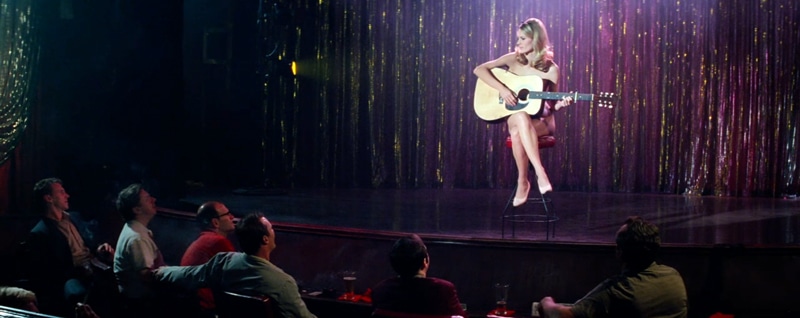
Jenny had a dream of becoming a “famous folk singer like Joan Baez”. However, the closest she came to her dream was by performing at a “gentleman’s club”.
While Forrest ended up living the American dream to its fullest extent, Jenny’s dreams were crushed.
Whether it was due to her traumatic past or not, Jenny does not follow the same rigid moral compass as Forrest. While Forrest remained stubbornly loyal to his girl and his country, Jenny flirted with all kinds of men, groups, and movements.
During the 60s, Jenny became a hippie and embodied the counter-culture movement in the United States. While she often drifted away from Forrest, they sometimes ended up back together. On a symbolic level, America is sometimes torn apart by a strong cultural divide – represented by Forrest and Jenny. However, some events lead to reunification.
For instance, when Gump came back from Vietnam, he mistakenly ended up in a “vets for peace” group which protested against the war. Despite his loyalty to his country, Forrest’s innate honesty caused him to speak his mind about the war.
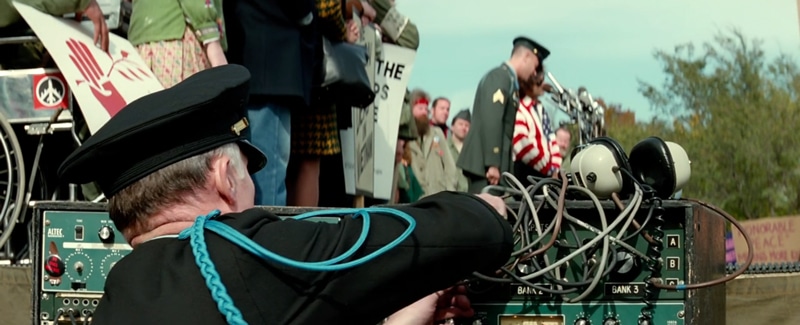
An “evil” army general unplugs Forrest’s mic while was divulging some ugly truths about the war. What was Forrest talking about? MKULTRA?
After his speech, Jenny runs on the reflecting pool under the Washington Monument and calls Forrest’s name.
However, this unity between Forrest and Jenny is short-lived because she associates with people who hate Forrest and what he stands for.
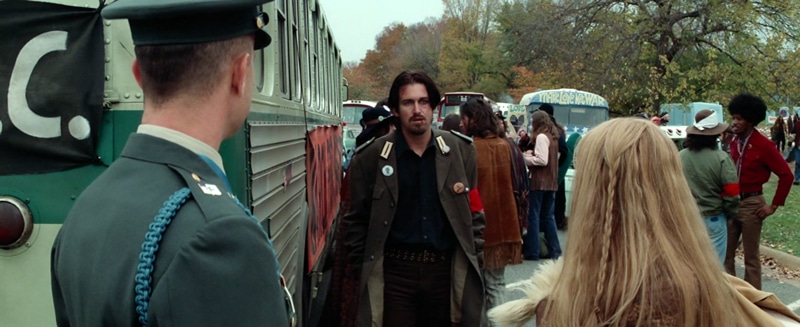
Jenny is going out with a guy who wears a red armband, a symbol associated with communist groups. Counter-culture America was being courted by foreign ideologies.
When this communist guy hits Jenny, Forrest (who is symbolically dressed in his army uniform) beats the crap out of him. In symbolic terms, when outside forces attempt to abuse and take advantage of America’s open-mindedness, Gump’s America comes to its defense. Because, although they are very different, Forrest and Jenny are from the same tree.
Jenny also introduced Forrest to another influential group in the 1960s.
Of course, Gump’s simple mind doesn’t really understand why he’s being yelled at. He’s all about heart and soul. And that’s why Bubba became his best friend.
Bubba Gump Shrimp Co.
Although they’re both from Alabama, Forrest and Bubba do not share the same family history. At all. At the beginning of the movie, Forrest says that he was named after a relative who founded the Klu Klux Klan. His mother told him that his name was a reminder of the things that people do “that don’t make no sense”.
On the other hand, Bubba’s family comes from a long line of servants.
Despite the fact that Forrest and Bubba have reasons to resent each other, we see the exact opposite happening. As the two begin talking, we realize that they’re extremely alike. In fact, Lt. Dan asks them (jokingly) if they are twins. In a way, they are. They both embody the same American spirit.
Instead of dwelling on their differences, Forrest and Bubba bond on what unites them. Instead of ruminating about the past, Bubba intends to use his family’s expertise on shrimp to launch a business.
Bubba tells Forrest:
“I’ma lean up against you and you just lean back right against me. This way we won’t have to sleep with our heads in the mud. You know why we’re a good partnership, Forrest? ‘Cause we be watching out for one another, like brothers and stuff.”
Bubba’s outlook is diametrically opposed to the antagonistic disposition of the Black Panthers towards Forrest (and what he represents). Bubba’s kind heart and moral values brought him to view Forrest as his brother. While they’re leaning on each other, Bubba proposes Forrest a 50/50 partnership in his shrimping business. While the past was shameful and painful, the future can be fruitful.
When his platoon was attacked, Gump used his running skills to save his fellow soldiers. But he was not able to save Bubba. However, since Bubba and Forrest embody the same spirit, his shrimping company dream lived on.
The company’s name, Bubba Gump Shrimping Co. represents the partnership between races in America towards a common goal.
However, at first, the company was struggling. Lt. Dan, who became Forrest’s first mate, asked him:
“Where the hell is this God of yours?”
Then, in the words of Gump, “God happened”. In what looks like divine intervention (or complete chance), all of Gump’s competition got decimated in a storm. We have, once again, an example of Gump’s faith and moral rectitude being rewarded. On a wider scale, America’s entrepreneurial spirit is seen as yet another facet of its Manifest Destiny.
Although Bubba did not live to enjoy the successes of the company he created (the spirit embodied by Bubba is the one who sacrifices the most), his family and community did.
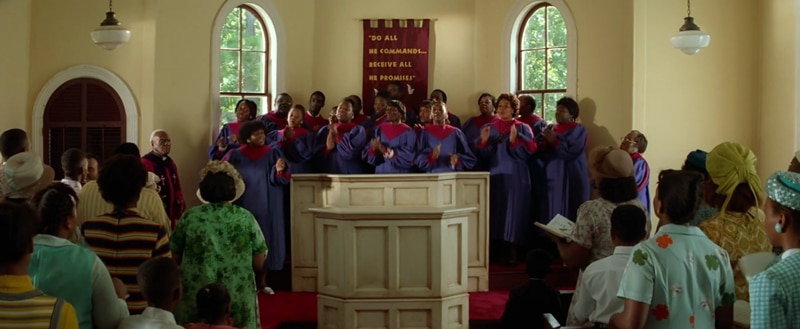
Gump built a new church for the community. Behind the choir is written: “Do all He commands … receive all He promises”. This sums up the spirit embodied by Gump.
Did God favor Gump’s company because it was known that he would follow his heart and use the profits to help others?
During the 1980s, Forrest started running from coast to coast, spreading good business ideas all over the place as if it was gospel.
Forrest’s run across the country represents the energetic and business-oriented America of the 1980s. And this spirit was contagious.
However, Forrest did not have any message. He just ran because “he felt like it” as if he was animated by a higher force. At one point, Gump went back home. Because all he really cared about was Jenny.
Back to Jenny
While Forrest was accomplishing big things, Jenny was destroying herself with drugs and prostitution. Her self-hatred caused her to nearly commit suicide.
At that point, she went back to Alabama and settled down with Forrest. Did she come back because she truly loved Forrest or because she knew he was rich?
This part of the story can represent the dying down of American counter-culture and its partaking in the general prosperity of that era.
When Forrest asked Jenny to marry him, she refused. She tells him:
“You don’t want to marry me.”
Nevertheless, she ends up copulating with him … but she runs away before Gump wakes up the next morning.
Although the wholesome life provided by Gump is healing to Jenny, she’s simply not made for it. The America she represents is not happy with the America he represents.
A few years later, Jenny reveals to Forrest that he has a son.
The two Americas embodied by Forrest and Jenny created a new generation.
Jenny also reveals to Forrest that she is dying of an unnamed virus. At this point, she asks Forrest to marry her.
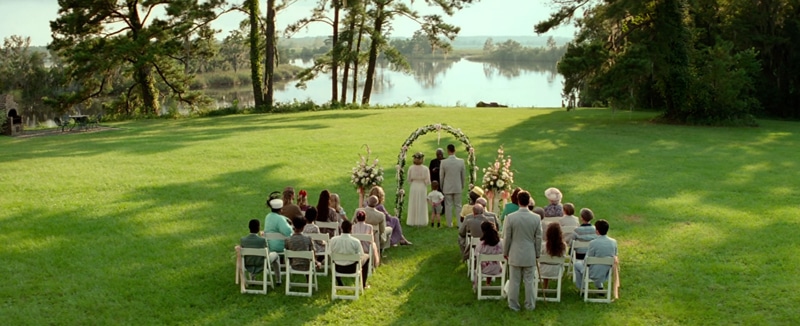
Despite Jenny’s “adventurous” past, she wears a virginal white dress for her wedding. That’s how Forrest always pictured her.
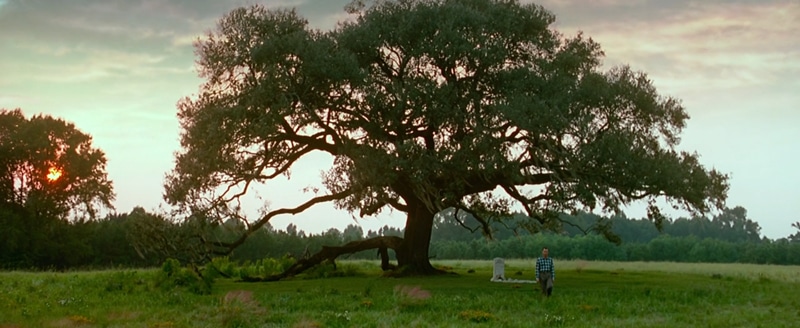
Jenny, who died young due to her self-destructive ways, is buried under their oak tree. She is literally back to her roots. As Gump walks away from her grave, a flock of birds flies away. Jenny is finally the bird she always wanted to be.
As Gump is standing on Jenny’s grave, he talks about the nature of destiny – a theme that permeates the entire movie.
“I don’t know if we each have a destiny or if we’re all floating around accidental-like on a breeze … but I think … maybe its both. Maybe both get happening at the same time”.
As Forrest sends away his son for his first day of school, a new America is ready to make history.
Also seen at the very beginning of the movie, this feather represents little Forrest’s destiny. And America’s destiny.
In Conclusion
Several modern reviews of Forrest Gump are somewhat critical of its message, as it is sometimes described as a “conservative” movie. While Gump does embody traits that can be associated with conservatism and Jenny with liberalism, the movie’s actual scope goes way beyond political lines.
In the movie, Gump is not guided by politics, but by right or wrong. At one point, he (clumsily) participates in the desegregation of schools in Alabama which went against the conservative views of the time. He’s also (clumsily) behind Watergate, a scandal which cost Nixon’s Presidency – a Republican.
Gump is solely guided by his moral compass and he runs as fast as he possibly can towards that direction. And he gets rewarded for it. Through its characters, the movie provides a vision of America: When America acts in a moral matter and strives for good, it gets rewarded with success and prosperity. When it hates itself and betrays its core values, it spirals into self-destruction, like Jenny. On the other hand, Forrest needs Jenny to learn some things and to realize that he can run fast.
Through these contrary winds, America’s destiny floats around like a feather. And nobody really knows where it will land. Except maybe God.
P.S. If you appreciated this article, please consider showing your support through a small monthly donation on Patreon. If you prefer, you can also make a one-time donation here. Your support will help this site navigate these difficult times as it continues to provide vital information and analysis on a regular basis. Thank you!

- Newsweek reports "big" pandemic inevitable.
- Fortune says kids mental health "improved" during covid pandemic … I say bullshit.
- Globalists can't make up their mind on the new covid successor … is it monkey pox (mpox)?
- Military weasel issues veiled threat to Elon Musk after Telegram CEO arrest.
- Unholy Trinity
- When mass media dismisses something a "conspiracy theory," it usually means there's something there.
- Blink Twice – One eyed bonanza!
Get an e-mail notification as soon as a new article is published on The Vigilant Citizen.
-
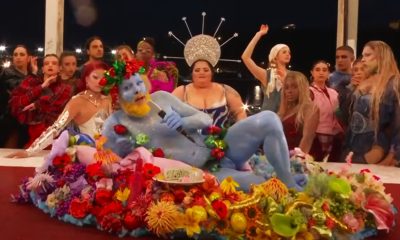
 Vigilant Reports1 month ago
Vigilant Reports1 month agoAn In-Depth Look at the Depravity of the 2024 Paris Olympics Opening Ceremony
-

 Pics of the Month3 weeks ago
Pics of the Month3 weeks agoSymbolic Pics of the Month 08/24
-
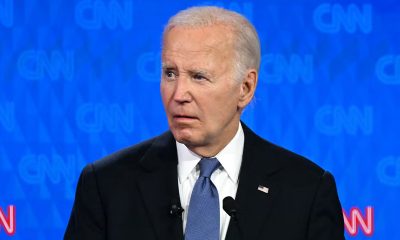
 Latest News2 months ago
Latest News2 months agoBiden’s Debate Performance Was Shocking Proof That He’s Merely a Puppet. Who Actually Runs the Country?
-

 VC Resources3 months ago
VC Resources3 months agoThe True Meaning of the Inverted Cross and Why Mass Media Lies About It
-

 Movies and TV2 months ago
Movies and TV2 months agoThe Much-Overlooked Symbolism in Roman Polanski’s “The Ninth Gate”
-

 Vigilant Reports1 month ago
Vigilant Reports1 month agoTrump’s Shooter Reenacted “The Manchurian Candidate.” Was He Brainwashed by Handlers? Or Social Media?
-

 Latest News3 months ago
Latest News3 months agoBilderberg 2024 or How the Elite Subverts Politics, Technology, Big Pharma and the Media
-

 Latest News2 months ago
Latest News2 months agoScientist Proposes AI-Powered Mind Control to Rehabilitate Criminals. Yes, it’s Insane.

